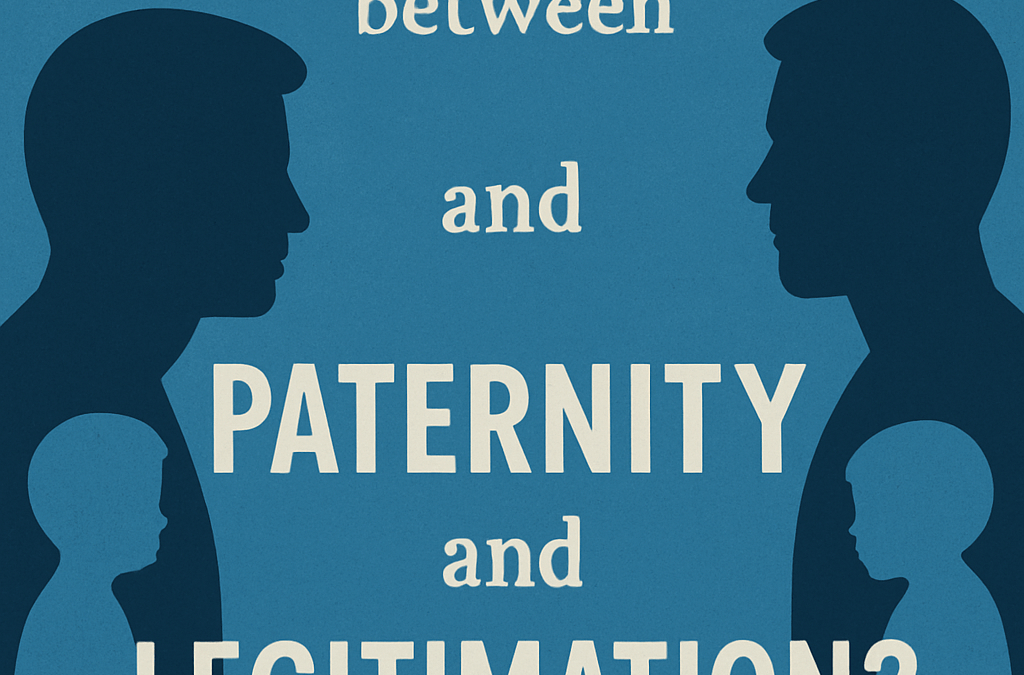If you’re a father in Georgia, you might assume that if you’re biologically linked to your child—or even listed on the birth certificate—you automatically have legal rights.
Unfortunately, it’s not that simple.
When it comes to custody, visitation, and making decisions about your child’s life, paternity and legitimation are two very different things—and understanding the difference could change everything for you and your child.
Let’s break it down clearly.
What is Paternity?
Paternity simply means that you are biologically the child’s father. It answers the question:
“Is this my child?”
🧬Paternity can be established:
- Voluntarily, by signing an acknowledgment at the hospital or later
- Through genetic (DNA) testing
- Through a court order
But here’s the key:
Paternity gives your child the right to receive financial support from you. It does not automatically give you custody or visitation rights.
Think of paternity as the starting line. It establishes responsibility—but not authority.
What is Legitimation?
Legitimation is a separate legal process in Georgia that gives a biological father the legal right to custody, visitation, and decision-making authority for their child.
Without legitimation:
- You cannot petition for custody or parenting time
- You have no say in major decisions (like schooling or medical care)
- The mother holds 100% of legal custody—even if you are paying child support
📜 Legitimation can be done:
- Voluntarily (if both parents agree)
- Or through a court order (if the mother contests it or if formal review is needed)
In short: Legitimation turns biological responsibility into legal fatherhood.
Why Both Matter
Without both paternity and legitimation, a father may find himself:
- Paying child support, but unable to see his child
- Having no legal recourse if denied visitation
- Unable to advocate for the child’s medical, educational, or emotional needs
2023 statistics from the CDC show that children with two legally recognized parents involved in their lives are 39% more likely to succeed academically and emotionally (CDC, 2023).
Establishing both paternity and legitimation doesn’t just protect your rights—it protects your child’s future too.
How Do You Establish Paternity and Legitimation in Georgia?
If you’re not married to the child’s mother at the time of birth, you’ll need to:
- Establish paternity — either through voluntary acknowledgment or court-ordered DNA testing.
- File a Petition for Legitimation — usually in the Superior Court of the county where the child and/or mother lives.
At your legitimation hearing, the court may:
- Grant legal fatherhood
- Approve a custody and visitation schedule
- Address child support obligations if needed
The Bottom Line
Being there for your child is about more than DNA—it’s about having the legal tools to protect, guide, and support them throughout life.
Whether you’re building a bond with your newborn or fighting to stay connected to an older child, understanding the difference between paternity and legitimation is the first step toward securing your role in their future.
Need Help Establishing Your Rights as a Father?
If you’re ready to turn biological fatherhood into full legal fatherhood, Catherine Ryan, Attorney at Law, can help you through the process with clarity, compassion, and courtroom expertise.
👉 Click here to schedule your confidential consultation with Catherine Ryan.
Your child deserves a father who stands tall—and knows his rights.

